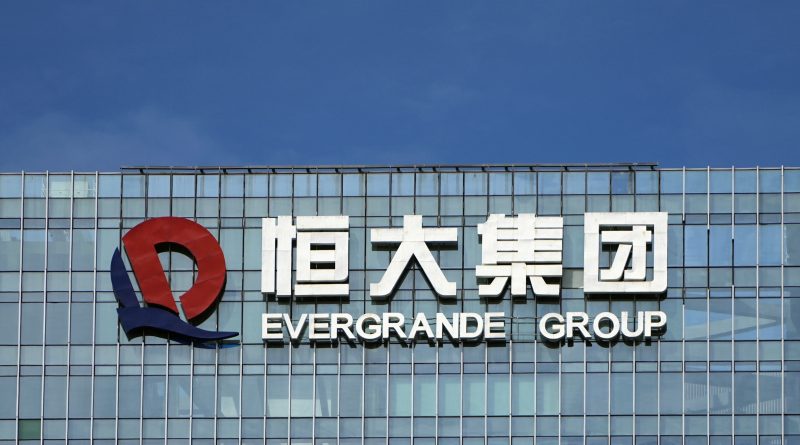Evergrande’s Debt
Where does Evergrande’s debt come from, and what effect could it have on the economy at large?
Key Actors:
- Evergrande Group; the largest real-estate developer in China
- The Chinese Central Government; the supreme power in China
- International banks
- Chinese real-estate buyers
Background
Evergrande is the single largest real-estate developer in China’s real estate sector, a sector which makes up 29 percent of its GDP. Since September of this year, Evergrande Group has been the centre of public attention due to their debt and credit crises, and the news of such an exemplar company failing has caused fears in both the financial world and China’s housing market at large.
What is the Evergrande Group and why is it in such a disadvantageous position?
The Evergrande group is the largest publicly traded Chinese company that specialises in real-estate development. Evergrande’s debt originates from its risky business model. The company is constantly walking a tightrope of debt and profit, as it has done for years. This high-risk, high– reward model is commonplace in Chinese housing developers.
However, Evergrande’s debt does not all come from banks. In fact, almost two-thirds of liabilities—a broader term for debt—comes from presold apartments: apartments that have yet to finish construction. In numerical terms, 200 of the 300-billion-dollar debt is in this form.
As expected of a company of its size, Evergrande naturally knows how to manage debt. The unstable storm that befell it was instigated by two things: the coronavirus and China’s new economic policy “The Three Red Lines.”
The coronavirus drained the company of its cash and liquid assets. During the pandemic, China’s interest in the residential housing market has dropped significantly, leading to less prebuilt apartment sales. But the construction must continue to deliver the pre-bought apartments in a timely manner. This drained Evergrande of its money as revenue fell drastically while expenses stayed. To combat this problem, they resorted to borrowing. The Wall Street Journal reports that “cash is so short the company … started paying some suppliers with unfinished apartments instead of money.” This shortage of money was exacerbated by the newly passed law “the three red lines”, three rules that companies in China must follow if they wish to borrow money. Evergrande greatly exceeded all three limits imposed by the three red line and lost the power to borrow money. Thus, stuck without cash and without the ability to borrow, it missed an interest payment of 80 million on Monday.
What is the national significance of this event?
Real estate is a major component of the Chinese economy—29 percent, to be exact—and the biggest player, Evergrande, falling apart may cause a significant decrease in confidence in Chinese homebuyers. Additionally, the company defaulting will likely cease many construction projects, and Chinese home-buyers who have prebought their apartments will never get them. Many who e pre-bought their homes are already protesting outside of Evergrande’s headquarter demanding their money back. The requests have not been met; one woman even threatened to kill herself, saying that The apartment took “all of her life savings” and without it she would have “no reason to live”.
The event has also heavily impacted the Chinese economy. Multiple banks such as UBS has lowered China’s estimate economic growth in 2021 by a significant amount. This is not solely impacted by the Evergrande event, but it is likely to still hold some significance. The financial difficulties have also spread to other property developers in China. UBS analyst say that “[the Chinese and international] bond markets remain effectively closed for [property] developers while sales, the main source of cash flow, are dropping”.
What is the international significance of this event?
Some experts fear that Evergrande’s credit crunch may cause banks to decrease their inclination to lend, and such a decrease is always bad for businesses. Some fear a worst case scenario like Goldman Sachs where the company defaults, thus increasing interest rates in the economy at large.
China’s Response
The Chinese central government has been rather inactive throughout Evergrande’s financial difficulties. Their only action has been a request to the provincial government for a timely solution. Currently, the provincial government has negotiated with and found three banks who are willing to lend. At this point, a total collapse is unlikely.
Bibliography
GmbH, finanzen net. “The Evergrande Crisis Is Spreading and Slowing the Chinese Economy Sharply, UBS and Barclays Warn.” Markets.Businessinsider.Com, https://markets.businessinsider.com/news/bonds/evergrande-crisis-spreading-china-economy-gdp-downgrade-ubs-barclays-2021-10. Accessed 19 Oct. 2021.
Loh, Matthew. “Chinese Property Developer Fantasia Just Missed a $206 Million Repayment Deadline, a Sign That China’s Real Estate Woes Extend beyond Evergrande.” Business Insider, https://www.businessinsider.com/chinese-developer-fantasia-misses-200-million-repayment-real-estate-woes-2021-10. Accessed 19 Oct. 2021.
Mendell, Erin. “What Is China Evergrande, and Why Is Its Crisis Worrying Markets?” Wall Street Journal, 8 Oct. 2021. www.wsj.com, https://www.wsj.com/articles/evergrande-china-crisis-11632330764.
News ·, C. B. C. “Fear Grips Markets as China’s Evergrande Struggles with Massive Debt | CBC News.” CBC, https://www.cbc.ca/news/business/markets-evergrande-monday-1.6182507. Accessed 19 Oct. 2021.
News, Bloomberg. “How China Evergrande Landed In Crisis Mode Again: A Timeline.” Financial Post, 15 Aug. 2021, https://financialpost.com/pmn/business-pmn/how-china-evergrande-landed-in-crisis-mode-again-a-timeline.
“China‘s Three Red Lines | UBS Global.” Asset Management – Global, https://www.ubs.com/global/en/asset-management/insights/china/2021/china-three-red-lines.html. Accessed 19 Oct. 2021.
https://cloudfront-us-east-2.images.arcpublishing.com/reuters/QCQRH6YGMRMCBM6VJDU5XHCT5A.jpg

